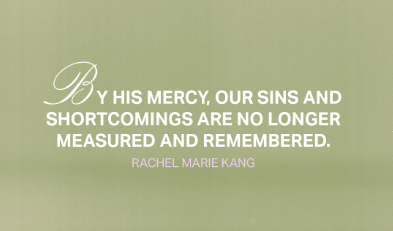What to Do When Confronted with Flashbacks of Sins During Prayer
Prayer, for many, serves as a sanctuary—a sacred space where individuals connect with the divine, seek solace, and find spiritual renewal. However, the tranquility of this sacred act can sometimes be disrupted by intrusive thoughts and flashbacks of past mistakes or “sins.” Such episodes can be deeply unsettling, causing feelings of guilt, shame, and remorse. If you find yourself grappling with these distressing memories during moments of prayer, it’s essential to navigate them with compassion, understanding, and a constructive approach.
Understanding the Nature of Flashbacks
Before delving into coping strategies, it’s crucial to understand that experiencing flashbacks of past actions during prayer is a human experience shared by many. These memories may arise due to various reasons—perhaps triggered by a particular event, emotion, or even a fleeting thought. The mind’s intricate workings can sometimes bring forth memories we wish to forget, especially when engaged in activities that demand introspection and vulnerability, such as prayer.
Acknowledge and Accept
The first step in addressing these flashbacks is acknowledgment. Recognize that experiencing feelings of guilt, regret, or shame during prayer is a natural human response. Instead of suppressing these emotions or berating yourself for past actions, acknowledge them with compassion. Understand that everyone has moments they regret, and these feelings are part of the human experience.
Acceptance does not imply condoning past actions but acknowledges them as part of your journey. By embracing your emotions without judgment, you create space for healing, understanding, and growth.
Seek Forgiveness and Redemption
One of the core tenets of many faith traditions is the concept of forgiveness. If your beliefs align with a higher power or spiritual framework, use these moments of introspection to seek forgiveness sincerely. Express your remorse, ask for guidance, and commit to making amends where possible.
Remember, seeking forgiveness is not solely about external validation but also about internal reconciliation. By acknowledging your mistakes and taking steps to rectify them, you embark on a path of redemption and spiritual renewal.
Reflect and Learn
Instead of getting ensnared in a cycle of guilt and regret, use these moments as an opportunity for self-reflection and growth. Reflect on the lessons learned from past actions, evaluate the root causes of your behaviors, and identify strategies to avoid repeating similar mistakes in the future.
Engaging in introspection allows you to gain insight into your motivations, triggers, and vulnerabilities. By understanding yourself better, you equip yourself with the tools necessary to make informed decisions and cultivate positive behaviors.
Seek Guidance and Support
Navigating feelings of guilt and remorse can be challenging, and you don’t have to face these emotions alone. Consider seeking guidance from trusted individuals, such as religious leaders, mentors, or counselors. These individuals can provide perspective, wisdom, and support as you navigate your feelings and strive for spiritual growth.
Engaging in open and honest conversations about your experiences can also help alleviate feelings of isolation and shame. Remember, vulnerability is not a sign of weakness but a testament to your courage and commitment to personal growth.
Practice Mindfulness and Presence
To cultivate a more profound sense of peace and connection during prayer, practice mindfulness techniques to anchor yourself in the present moment. Focus on your breath, the sensations within your body, or the words of your prayers. When intrusive thoughts arise, gently redirect your focus back to the present moment without judgment or frustration.
Mindfulness allows you to cultivate awareness, acceptance, and presence, enabling you to engage more deeply with your spiritual practice. Over time, with consistent practice, you may find it easier to navigate intrusive thoughts and cultivate a sense of tranquility and connection during prayer.
Conclusion
Experiencing flashbacks of past actions or “sins” during prayer can be distressing, but it’s essential to approach these moments with compassion, understanding, and a constructive mindset. Acknowledge your feelings, seek forgiveness, reflect on lessons learned, seek guidance and support, and practice mindfulness to navigate these emotions with grace and resilience. Remember, everyone has moments they regret, but it’s how you choose to respond and grow from these experiences that define your spiritual journey. Embrace compassion, forgiveness, and self-reflection as you strive for spiritual renewal and growth.
